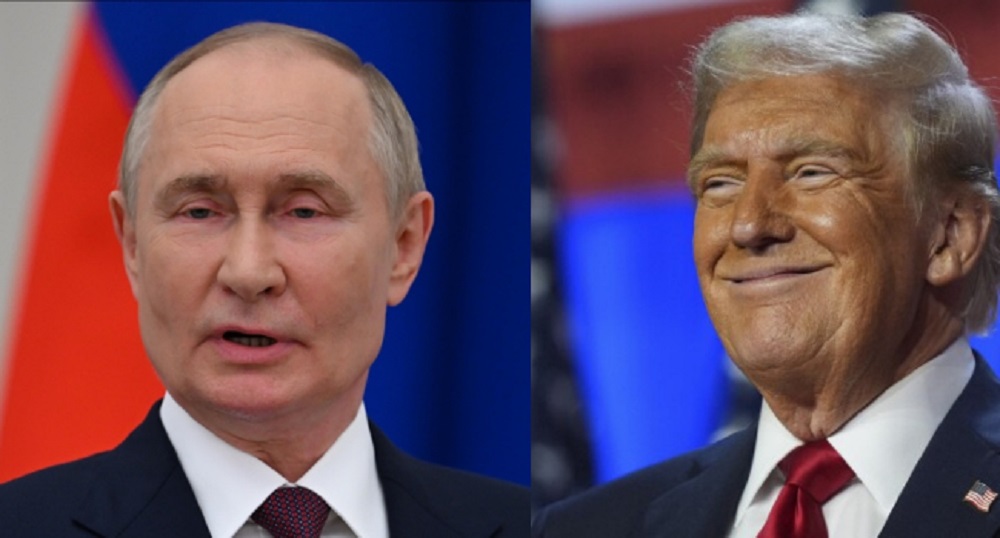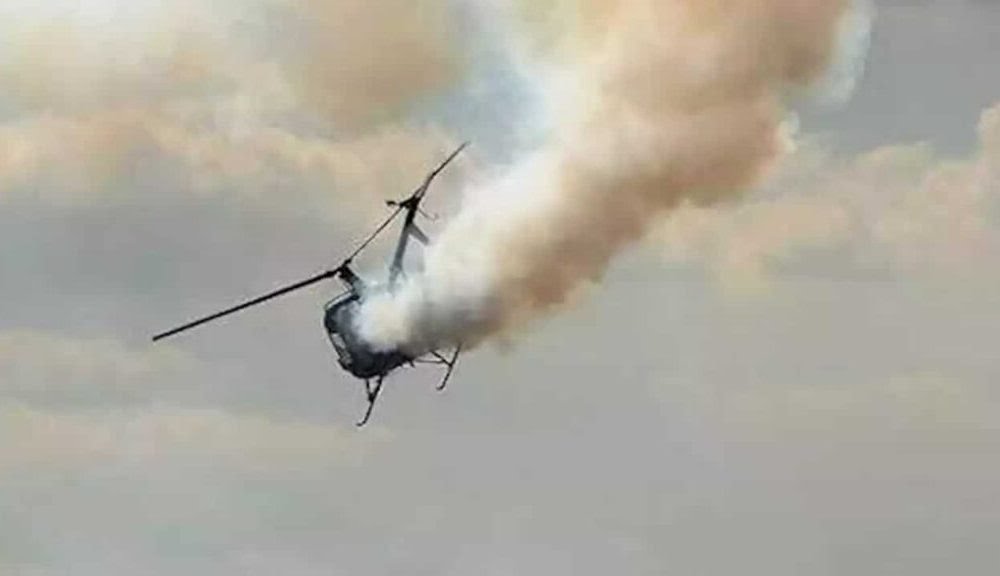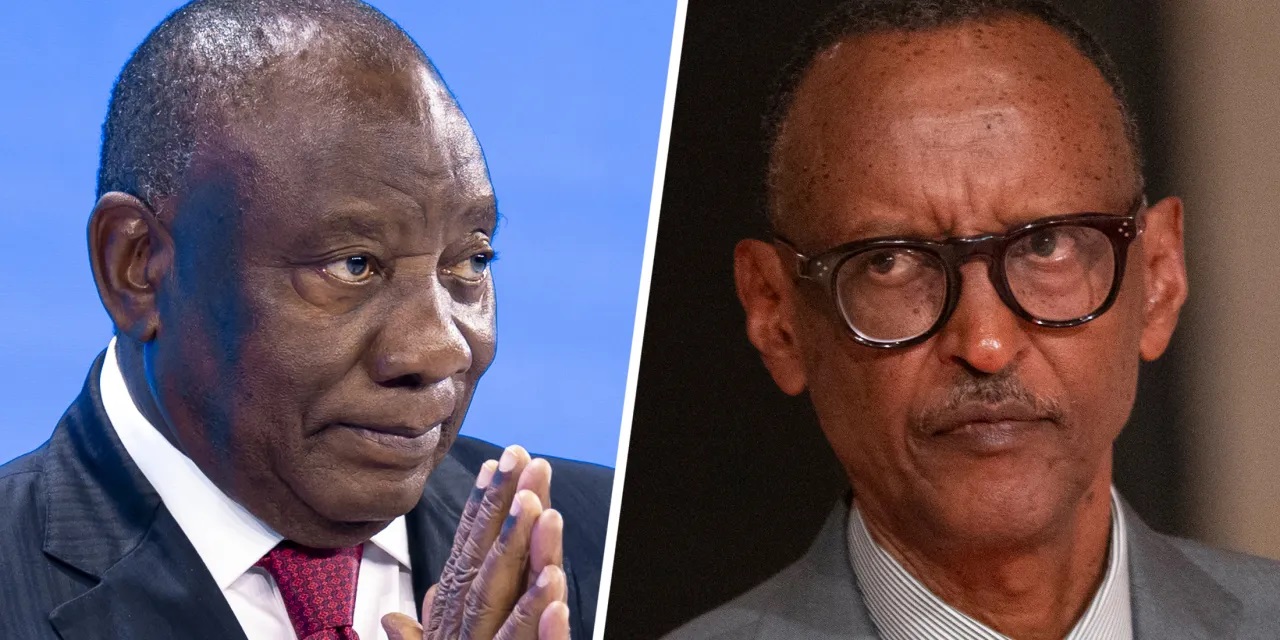Foreign
25% tariffs on Mexico, Canada begins today

US President Donald Trump will impose tariffs on Saturday of 25% on Mexico, 25% on Canada and 10% on China, says the White House.
But Trump said on Friday that Canadian oil would be hit with lower tariffs of 10%, which could take effect later, on 18 February.
The president also said he planned to impose tariffs on the European Union in the future, saying the bloc had not treated the US well.
White House press secretary Karoline Leavitt said the Canada and Mexico duties were in response to “the illegal fentanyl that they have sourced and allowed to distribute into our country, which has killed tens of millions of Americans”.
Trump has also repeatedly said the move was to address the large amounts of undocumented migrants that have come across US borders as well as trade deficits with its neighbours.
Ms Leavitt told a news briefing at the White House on Friday: “These are promises made and promises kept by the President.”
During the election campaign, Trump threatened to hit Chinese-made products with tariffs of up to 60%, but held off on any immediate action on his first day back in the White House, instead ordering his administration to study the issue.
US goods imports from China have flattened since 2018, a statistic that economists have attributed in part to a series of escalating tariffs that Trump imposed during his first term.
Earlier this month, a top Chinese official warned against protectionism as Trump’s return to the presidency renews the threat of a trade war between the world’s two biggest economies – but did not mention the US by name.
Addressing the World Economic Forum in Davos, Switzerland, Ding Xuexiang, Vice Premier of China, said his country was looking for a “win-win” solution to trade tensions and wanted to expand its imports.
China, Canada and Mexico are the top US trading partners, accounting for 40% of the goods imported into the US last year, and fears are rising that the new steep levies could kick off a major trade war as well as push up prices in the US.
Canadian Prime Minister Justin Trudeau said on Friday: “It’s not what we want, but if he moves forward, we will also act.”
Canada and Mexico have already said that they would respond to US tariffs with measures of their own, while also seeking to assure Washington that they were taking action to address concerns about their US borders.
The BBC has reached out to the Chinese embassy in the US for comment.
If US imports of oil from Canada and Mexico are hit with levies it risks undermining Trump’s promise to bring down the cost of living.
Tariffs are an import tax on goods that are produced abroad.
In theory, taxing items coming into a country means people are less likely to buy them as they become more expensive.
The intention is that they buy cheaper local products instead – boosting a country’s economy.
But the cost of tariffs on imported energy could be passed on to businesses and consumers, which may increase the prices of everything from petrol to groceries.
Around 40% of the crude that runs through US oil refineries is imported, and the vast majority of it comes from Canada.
On Friday, Trump agreed tariff costs are sometimes passed along to consumers and that his plans may cause disruption in the short-term.
Mark Carney, the former head of Canada’s and England’s central banks, told BBC Newsnight on Friday that the tariffs will hit economic growth and drive up inflation.
“They’re going to damage the US’s reputation around the world,” said Carney, who is also in the running to replace Prime Minister Trudeau as leader of Canada’s Liberal Party.
Foreign
Russia Slams Trump Plan For ‘Star Wars’ Missile Shield

Russia on Friday criticised President Donald Trump’s plan to build a “Star Wars”-like missile shield for the United States, saying it risked turning space into an arena of “confrontation”.
In an executive order on Monday, Trump called for the creation of an “Iron Dome for America” to counter ballistic and hypersonic missile threats, reviving parts of a controversial Reagan-era plan nicknamed “Star Wars” that would have placed missile interceptors in space.
“We regard this as yet another confirmation of the US intent to turn space into an arena of armed confrontation and to deploy weapons there,” Russian foreign ministry spokeswoman Maria Zakharova said in a briefing.
Zakharova said the plan would expand Washington’s missile deterrence to a scale “comparable to Reagan’s Star Wars”, which she called “odious”.
She said the move was primarily aimed at “devaluing Russian and Chinese strategic deterrence capabilities”.
“To put it mildly, these US approaches will not contribute to reducing tensions,” she said.
The “Iron Dome” in Trump’s decree refers to a highly successful system employed by Israel to down short-range rockets.
Washington faces various missile threats from adversaries, but they differ significantly from the short-range weapons that Israel’s Iron Dome is designed to counter.
Russian President Vladimir Putin last year unveiled a new hypersonic missile nicknamed “Oreshnik”, a weapon that experts believe flies at 10 times the speed of sound.
The United States said in its 2022 National Defense Strategy that Beijing is also closing the gap with Washington when it comes to ballistic and hypersonic missile technology.
Both Moscow and Washington have traded accusations of weaponising space in recent years.
The United States accused Russia last May of deploying a “space weapon” into the same orbit as a US satellite.
AFP
Foreign
67 dead as plane, helicopter collide midair in US

A passenger plane and a military helicopter collided mid-air near Ronald Reagan National Airport, killing 67 passengers.
According to Al Jazeera, the incident occurred around 9 p.m. on Wednesday, as reported by the Federal Aviation Administration.
The aircraft involved were a PSA Airlines Bombardier CRJ700, operating as an American Airlines flight, and a US Army Sikorsky UH-60 Black Hawk helicopter.
President Bola Tinubu expressed sadness over the incident, offering condolences to the government and people of United States.
The Bombardier plane, operated by an American Airlines subsidiary, was approaching Reagan National Airport at around 9:00 pm (0200 GMT) after flying from Wichita, Kansas, when the collision happened.
The aircraft involved was a PSA Airlines Bombardier CRJ700, operating as an American Airlines flight, and a US Army Sikorsky UH-60 Black Hawk helicopter.
According to the US Federal Aviation Administration, the plane carried 60 passengers and four crew members, while the military helicopter had three personnel on board.
US officials said on Thursday that there were likely no survivors.
“We are now at a point where we are switching from a rescue operation to a recovery operation,” Washington Fire Chief John Donnelly, told a news conference at Reagan National Airport.
“At this point, we don’t believe there are any survivors,” Donnelly said, adding that 28 bodies had been recovered — including one from the helicopter.
In a post via his verified X handle on Thursday, Tinubu commiserated with the families of the victims, the people of the United States, and all affected by the sad incident.
He wrote, “I am deeply saddened by the tragic incident in Washington, D.C.
“On behalf of Nigeria, I extend our heartfelt condolences to the families of the victims, the people of the United States, and all affected by this profound loss. I commend the courageous efforts of first responders and emergency teams for their selfless work in harsh conditions.
“Nigeria stands in solidarity with the United States Government and its People, united in grief and hopeful for a new day.”
Foreign
S’Africa, Rwanda clash over DR Congo conflict

South Africa and Rwanda’s already fraught diplomatic relations have worsened after President Cyril Ramaphosa accused the Rwanda-backed M23 rebel group of killing South African peacekeepers in the eastern Democratic Republic of Congo.
As the rebels gained the upper hand on the battlefield by capturing most of Goma – the biggest city in the east – South Africa fired a diplomatic salvo, warning that further attacks on its troops would be considered a “declaration of war”.
BBC reports that Rwanda’s President Paul Kagame hit back, accusing South Africa of being part of a “belligerent force” involved in “offensive combat operations” to help the Congolese government “fight against its own people”.
AFP reports that the M23 militants vowed on Thursday to march on the DR Congo capital, Kinshasa, as its fighters made further advances.
“We will continue the march of liberation all the way to Kinshasa,” head of a coalition of groups including the M23, Corneille Nangaa, told reporters in Goma.
“We are in Goma and we will not leave, for as long as the questions for which we took up arms have not been answered,” he said.
A total of 13 South African soldiers were killed in the fighting since last week as the rebels made a lightning advance towards Goma – a major trading hub on the border with Rwanda.
Last year, another seven South Africans were killed in eastern DR Congo – making it one of the country’s deadliest combat-related tragedies in recent times.
South Africa and Rwanda have long had a difficult relationship.
BBC reports that in 2014, South Africa expelled three Rwandan diplomats after an attack on the home of an exiled Rwandan dissident in Johannesburg.
Kagame’s government responded by expelling six South African envoys.
Tensions seemingly eased after Ramaphosa visited Rwanda last year for commemorations to mark the 30th anniversary of the genocide in which about 800,000 people were killed.
But they have flared up again, following the death of the South Africans who were deployed to eastern DR Congo in December 2023 as part of a regional peace-keeping force sent by the Southern African Development Community.
South African soldiers make up the bulk of the force – known by the acronym SAMIDRC – that had the mission of repelling armed groups such as the M23 and bringing peace to the mineral-rich region following decades of unrest.
The latest diplomatic fall-out started with a post shared on Ramaphosa’s X page.
In it, the president confirmed he had spoken to Kagame about the escalating conflict and that both leaders had agreed “on the urgent need for a ceasefire and the resumption of peace talks by all parties to the conflict.”
Ramaphosa also insisted, in a later statement, that the presence of South African troops in DR Congo was not a “declaration of war against any country or state” – an apparent reference to Rwanda.
South Africa’s Defence Minister Angie Motshekga, however, had a slightly different take, telling reporters: “There’s been no hostilities between us, it’s just that when they were firing above our heads, the president did warn them (that) if you’re going to fire, we’re going to take that as a declaration of war.”
But Ramaphosa went further on X, saying the peacekeepers were killed in attacks by the M23 and – he pointedly added – “Rwanda Defence Force militia.”
This angered Kagame, who said statements made by South African officials – including Ramaphosa – contained lies and distortion.
“The Rwanda Defence Force is an army, not a militia,” Kagame replied on X.
“President Ramaphosa has never given a ‘warning’ of any kind unless it was delivered in his local language which I do not understand. He did ask for support to ensure the South African force has adequate electricity, food and water, which we shall help communicate.
“President Ramaphosa confirmed to me that M23 did not kill the soldiers from South Africa, (the Conglese army) FARDC did,” Kagame said.
-

 Economy14 hours ago
Economy14 hours agoNaira rebounces again, gains 1.6% against Dollar at official market
-

 Opinion14 hours ago
Opinion14 hours agoNCC’s 50% Telecom Tariff Hike: A Necessary Step for Industry Survival or a Burden on Nigerians?
-

 News19 hours ago
News19 hours agoTop 10 African countries who received most U.S. HIV/AIDS Assistance in 2024
-

 Sports20 hours ago
Sports20 hours agoAFCON 2025: Tanzania ready to face Super Eagles, others — Ali David
-

 News20 hours ago
News20 hours agoNYSC reveals when members will start earning N77k monthly
-

 News20 hours ago
News20 hours agoMatawalle To Amaechi: Stop Fueling Violence Or Face Fire
-

 News14 hours ago
News14 hours agoJust in: PSC orders immediate retirement of officers above 60 or with 35 years of service
-

 Opinion13 hours ago
Opinion13 hours agoCBN: Navigating the process for monetary stability


















